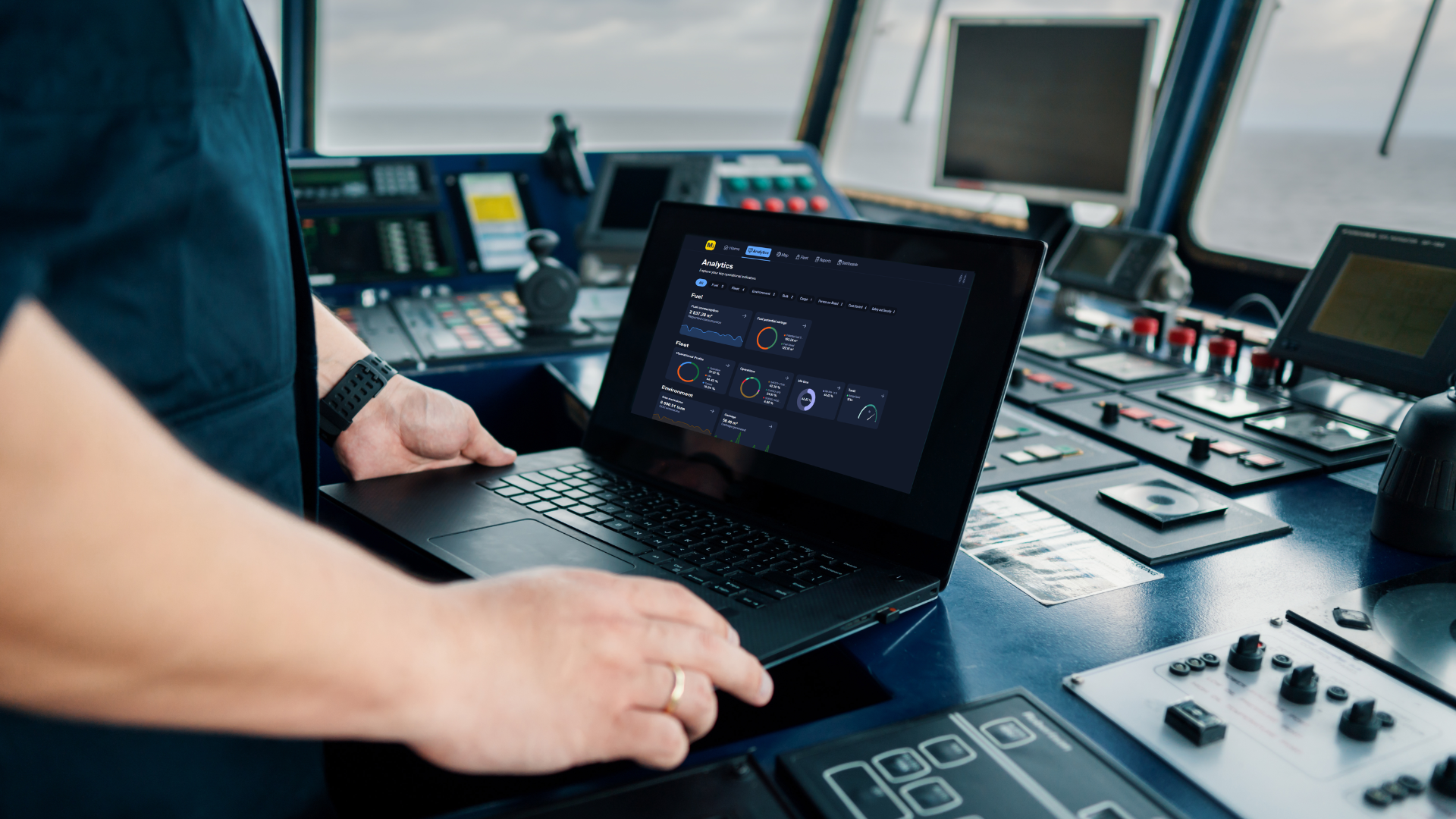Whilst maritime decarbonization targets are ambitious and will require action in the short term, the encouraging news is that there are clear steps that we can take today that will deliver immediate and significant fuel savings in OSV operations. What is more, these measures, immediately available, will lay the foundations for a long-term program of change, all driven by a data-led approach to fuel efficiency.
At a time when regulatory and market forces are driving the OSV industry to decarbonize and extend the lifetime of vessels, it is becoming increasingly clear that good data is not just a ‘nice to have’. It’s now a prerequisite to meeting operational and environmental obligations.
Most OSV operators know what it takes to operate a vessel well. What they don’t always have is the precise, granular data they need to assess whether or not their vessels are performing at their best. Opsealog’s latest white paper outlines five steps that can help operators secure immediate gains in fuel efficiency and reduce the carbon impact of their offshore activities. Here are the five steps to optimize your ship’s performance:
Step 1: Mapping the existing data environment
Most fuel efficiency improvements can be unlocked with data that is already available, avoiding the need to install new sensors or systems. Instead, the key is to streamline data collection and integration.
In the context of ship operations, data mapping involves assessing various data sources, both digital and paper-based, and addressing issues like missing or messy data. This mapping also explores potential enhancements through external data, such as weather forecasts.
Step 2: Understanding the data analysis process
Digital solutions, including those powered by artificial intelligence (AI) and machine learning, help operators leverage data for regulatory compliance and business opportunities. AI can analyze historical and forecasted data alongside current conditions, automating data collection without burdening the crew.
After data is collected, checked, and integrated to provide a precise snapshot of fleet performance and identify patterns, human expertise is then necessary to interpret the data in the specific context of the company, fleet, and operational challenges. In short, people play a vital role in transforming data into actionable insights and driving change.
Learn more: Application of Artificial Intelligence in the Maritime industry
Step 3: Identifying clear goals for greater efficiency
In practice, tracking data enables companies to identify starting points and potential areas for improvement in areas like fuel consumption and emissions, leading to enhanced operational, financial, and environmental outcomes. Analysis of data on vessel positions, speed, and engine configurations allows an understanding of underperforming vessels, facilitating goal-setting for improvement.
At this point, developing clear KPIs becomes crucial for assessing return on investment, and communicating results to key stakeholders.
Step 4: Ensuring a collaborative process
Successful digitalization requires organizational and cultural changes as much as technological advancement. The transition must encompass all levels, from boardrooms to vessel bridges. While technical challenges like data integration and data quality management can be resolved, a shift in mindsets is crucial for effective implementation. Real dialogue and discussions about practical challenges and realities on board are vital for success.
User experience is paramount, requiring investment in software design to ensure users are comfortable with interfaces and understand their roles and goals. Projects often involve multiple stakeholders, including third-party providers, and data from various sources, requiring collaborative efforts for smooth integration. Internal stakeholders, especially managers, play a crucial role in implementing a new digital mindset.
Step 5: Managing ongoing change
Digitalization is an ongoing process rather than a final destination. While pilot testing new approaches is crucial for gaining valuable experience and building confidence in the broader implementation of digital solutions, change management is a vital aspect of digitalization projects. Regulations will continue to evolve, and ongoing expert consultation will be required to identify more opportunities for reducing fuel consumption.
Establishing foundations for onboard data collection, integration, and analysis supports long-term organizational ambitions, but data processes must evolve to align with the changing landscape of the energy transition. As new low-carbon and zero-carbon fuels emerge, adapting data collection and processing methods ensures the continued implementation of robust measurements of consumption, emissions, and operational costs associated with adopting these new fuels.
Read more about vessel efficiency with data-driven insights.
Conclusion
Moving into 2024, the OSV sector is at a crossroads – rising fuel prices and charter rates, combined with vessel shortages, are incentivizing owners and charterers to maximize fuel efficiency and vessel use.
As a result, digitalization is gaining traction as a ‘low-hanging fruit’ solution to optimize operations and reduce costs. Charterers are already using digital tools to ensure that the right vessel type and size are assigned to the right task and to identify specific needs for the next vessel to be chartered. On the shipowner side, smart data can support the fleet’s availability, minimize downtime, and optimize deployment decisions.
Having a digital foundation will increasingly become an important differentiator for companies. Those who embrace digitalization will be better prepared to harness the growing volume of data that will be available from ships going forward, and in a better position to comply with future emissions regulations.

